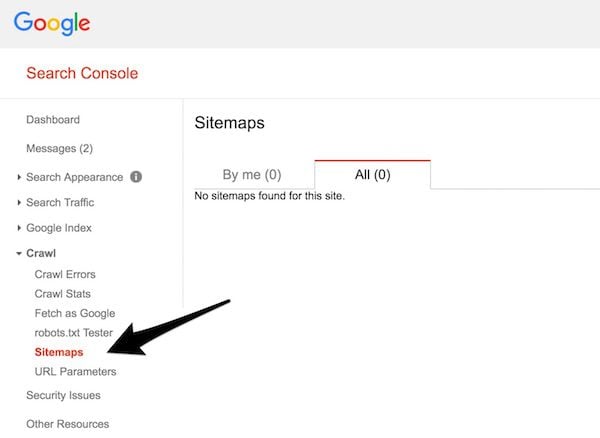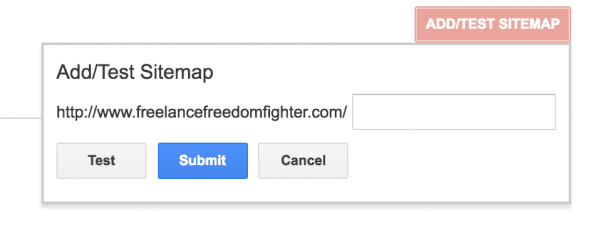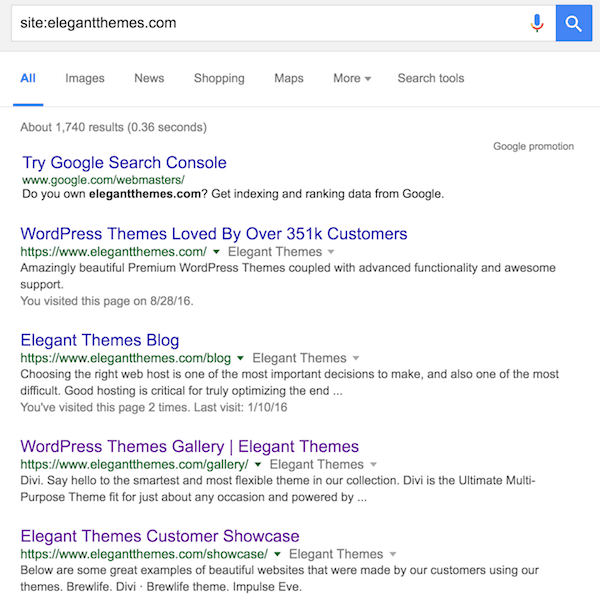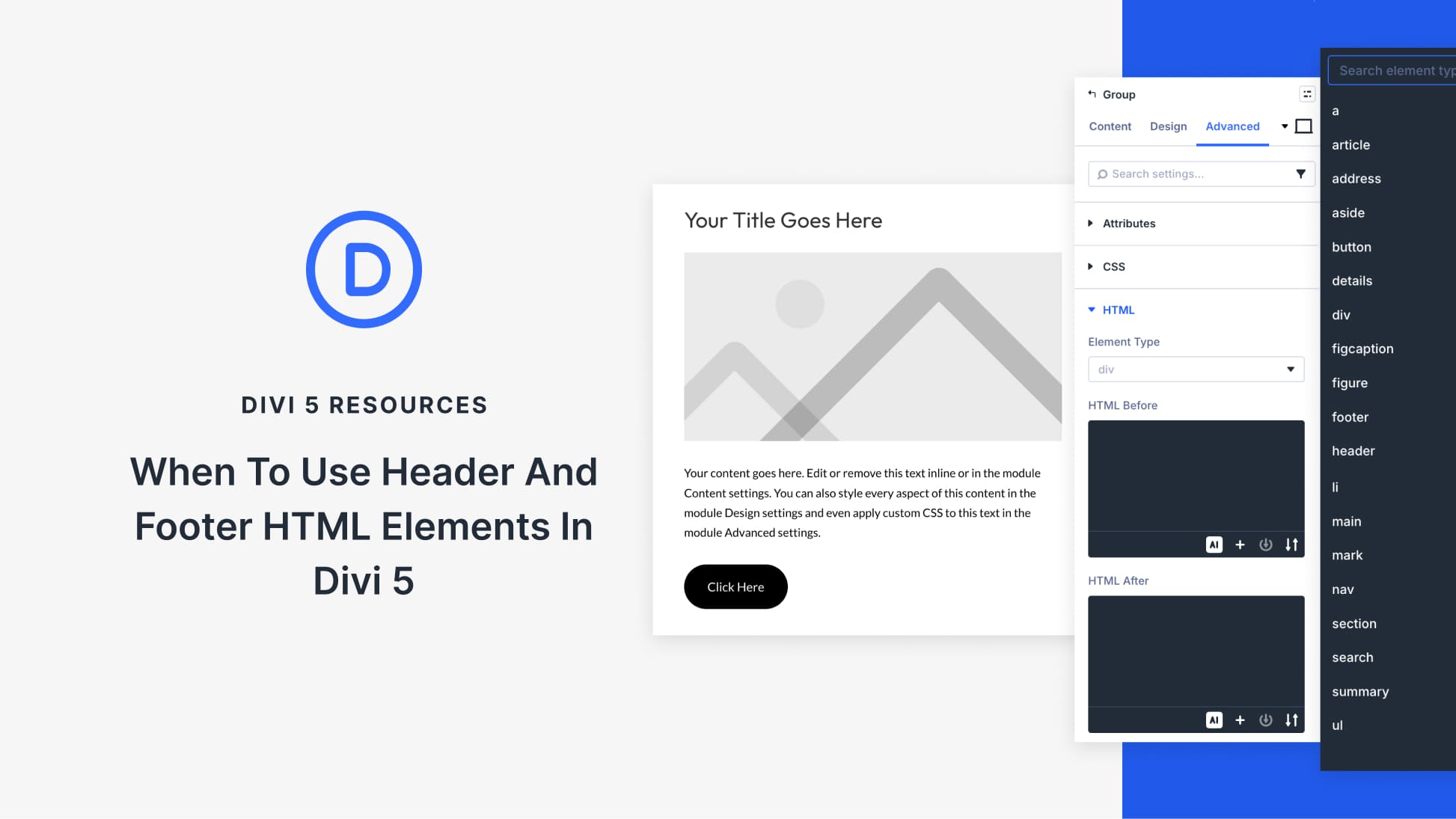You’ve done it.
After a lot of decisions, time and effort, you’ve managed to launch a new website, and you’re ready for the world to see it.
It’s exciting, isn’t it? The world seems a little brighter and full of possibilities.
But as I’m sure you’ve already figured out, this isn’t the end of the line.
One of the most important steps after having a site live on the web is making sure that it gets indexed by Google.
Without indexing, Google will never show your content in its search results for keywords you that should get you found.
And that can send your high hopes plummeting faster than you can crack a whip at.
Even though Google has made a lot of changes to SEO, getting your website indexed isn’t altogether difficult. While some have the best of luck getting their site indexed in a few hours, others may find that it can take longer.
No matter the case, the steps to get you there work well. So let’s cut the chit-chat.
Here are our tips for getting your site quickly indexed by Google.
How To Check If Your Site Is Indexed by Google

Before you go through the hassle of indexing your site, you should double check to make sure that Google hasn’t already done its job for you.
Here’s a quick little search hack to check and see if you’re already in the system:
site:yourURL.com
Doing this will pull up what content and pages Google has already indexed. If Google has already added your site, then your site will appear in the page results along with the pages and posts that Google has cataloged. (See image below)
If your site doesn’t show up, then that means it’s time to go to work getting Google’s attention.
Have Your Website Ready With Content
To get Google to notice your site, you need to understand what it’s looking for.
In a lot of ways, Google is an online library that houses the most information in the world.
Like any library, it has to categorize the information it receives to keep everything in order and easy to find.
With that in mind, consider this:
What if a library receives a book with a great title and cover design only to open it and find that it was completely blank. What would they do?
Probably set it aside and keep it off the shelves because the book is utterly useless.
The same applies to Google.
If it comes to a website that has no content like pages or blog posts, then it’s not going to want to “put it on the shelves” so to speak. That’s why having content on your website should be your first step.
All of your pages and blog content should have unique, useful content available.
That way, when Google does crawl your site to index it, it will have a much better chance of sticking.
Create and Submit a Sitemap
-

Author Wissanu vis ShutterStock
Once you have content worth crawling and indexing, it’s time to get Google’s attention. One of the best and fastest ways to do this is to submit a sitemap to Google.
Now don’t worry, even though it sounds super technical, creating and submitting your sitemap is quite simple.
The easiest way to create an XML sitemap is to use a plugin, and chances are you’re already using one that can do the job in a snap.
Some of the top plugins that allow you to create this are Yoast, Squirrly SEO, and even Jetpack.
If you’re using Yoast, you can follow this tutorial to on WPBeginner to learn how to use the plugin to generate a sitemap.
As for creating your new sitemap, there are a few things you’ll want to do before you can do that.
Verify Your Site on Google Search Console
You likely already have a Google Analytics account, but a lot of people forget about setting up an account on Google Search Console (previously known at Google Webmasters).
If you’re submitting your sitemap to Google, this is the first step to actually doing that.
If you haven’t done this just yet, here is a great and easy to follow tutorial on the Yoast blog.
Submit Your Sitemap To Google
After you’ve connected your site to Google Search Console, now it’s time to submit your sitemap. Thankfully, this part is easy.
Login to Search Console and scroll down to the menu option “Crawl.”

Select “Sitemap.” In the top right corner, click on the button that says, “Add/Text Sitemap.”

Clicking that will open the option to add the URL to your XML Sitemap.

Add your URL (which should look something like myurl.com/sitemap.XML) and submit it.
That’s it. Now Google has what it needs to take a good long look at your site so that it can start categorizing it.
Now, you could stop here, but the point of this article is to help you index your site quickly.
Let’s cover a few more tips that can help Google to pay attention.
Start Sending Traffic To Your Website
Even though your website is not yet indexed by Google, it’s still a live site that people can go to. As a search engine, Google is getting smarter and it’s looking at more than just your sitemap to see what it should index.
Sending traffic to your blog is a great way to help Google see your site as something it should index because people are already coming to it and (hopefully) finding useful information there.
Here are some ways to start getting traffic to your blog so that you can quickly get your blog indexed.
It might seem a bit outdated, but using Social Bookmarking sites can be a great way to start sending traffic and social signals to your website.
This is part of the reason why I mentioned that having content on your site should be the first step since you’ll want something to send traffic and to draw attention to.
Tools and sites like Digg, Delicious, and StumbleUpon are some great places to start. If you want a few more to look at, read this article over at Brandwatch.
Blog Commenting
Using Blog Commenting for backlinks is dead. That is to say, even though this can give you a bit of link juice still, it is NOT a solid SEO strategy.
However, leaving really helpful and informative comments on top blogs in your site niche is a great way to send targeted traffic to your new site.
Harsh Agrawal used this practice on a new site to help get it index in 24 hours, so it’s certainly worth trying. Just don’t go super over the top here.
Too many blog comments in a single sitting may be viewed as a linking scheme and do some damage rather than good.
There is no shortage of social media groups you can join. Facebook, LinkedIn, and Google Plus have plenty to choose from no matter what sort of site you run.
Do a search in these platforms and join a few that look promising. When the moment presents itself, add a link to your site within the group to funnel a bit of traffic right to you.
It’s a bit time-intensive but can pay off with time.
Start Building Your Own Links
Guest posting and outreach is a great way to land high-quality links on your site, even if it’s not indexed yet.
If you’re not very good at writing, you have a couple of options:
- Practice writing blog content on your blog until you’re comfortable enough to pitch ideas to blogs in your niche that take guest posts.
- Find a freelance writer or content marketer and build a relationship with them. Many writers will not take payment for links placed on blogs. But by building a relationship with them you have a better chance of earning high-quality links. (Either way, you should totally try this!)
Also keep in mind that Brand Mentions can be just as powerful as an actual link.
I knew it! RT @CyrusShepard: This Google patent defines non-linking citations as "implied links" http://t.co/cOxv0irklk
— Rand Fishkin (@randfish) March 26, 2014
Google is getting smarter all the time, and its recent updates make it so that mentions of your brand are viewed as implied links.
Therefore, landing both links and brand mentions will send some much-needed signals to Google showing that you mean business, and you should get indexed sooner rather than later.
Wrapping It Up
Now that you’ve been sending traffic to your site, and you submitted your sitemap, go back to Google Search and try searching your URL again.
If your site is indexed by Google, then you’re good to go. If not, just keep at it and checking on it.
Have you ever had to get a site indexed? What worked for you? Let us know in the comments below.
Article Thumbnail Image by Author Alex Hliv / Shutterstock.com










Thanks for the article. It is very informative and helped a lot.
Useful article. Thanks for sharing.
According to me submitting link directly to google instead of submitting from webmaster indexes link fast.
I know this article is specificaly about Google indexing but its worth remebering to submit a sitemap to Bing webmaster as well.
thanks for the great useful information. but what i do is sometimes when i have to get it quickly index, i usually Fetch it in Google Webmaster tools, and it does the job of indexing it quickly in Google Search results. For eg. i update some content of a page, then i usually Fetch it using google webmaster tools for quick update in SERP.
This is really a good information you just shared. One more thing I wish Google do is to increase the number of post with url it crawl. It should be increased more from 10 to a number close to that of the crawl only page that is about 500.
Thanks for sharing this article…Really useful n awesome article
Excellent article.
I wish I had known about these techniques when I started my 1st website!! Especially the one about commenting.
I use this method to index with all search engine. Especially local search engine too.
Fetch as Google Bot from Google webmasters tools is another great way. I usually use this.
Very useful post.
It is slower because you have to index all web pages on a site one to one … but is faster because one does not have to wait for the Google bot to crawl them nice post thx very much
Hello,
Nice and well explained article. Really useful. Thanks for sharing.
Thanks for the tips, submit url in Google Webmaster Tool is my favorite way 😀
The quickest and easiest way is to submit your website to Google is by following this link here: https://www.google.com/webmasters/tools/submit-url?continue=/addurl&pli=1
The fastest way I’ve had a sitemap be indexed is by using the Google XML Sitemap for Videos plugin. If you create a post on your blog, embed a YouTube video, and generate a video sitemap using this plugin, you can have your site indexed in less than 24 hours. I’ve seen it happen within 30 minutes.
https://wordpress.org/plugins/xml-sitemaps-for-videos/
Are there any issues with that plugin? It hasn’t been updated in 2 years.
I’ve never seen an issue with it, even with the newest version of WP (4.6.1). I just add it and ping it. Once it’s indexed, I remove the plugin because, at that point, it’s useless.
I’ve never seen an issue with it, even with the newest version of WP (4.6.1). I just add it, generate the sitemap, and ping it. Once it’s indexed, I remove the plugin because at that point, it’s useless.
OMG, I had been wrong 🙁
getting site indexed by Google is just the beginning and the easiest part, the hardest part is to find niche, write quality content which is easy and interesting to read ( like this blog 😉 plus proper “keywording”
I think we can ping our website to quick index.
Thanks Ariel, great post! With that knowledge anyone can get a new website moving down the road of getting indexed. However, you forgot to mention that even doing the above list do not expect immediate indexing by google. You get put into a queue and when they get to you they get to you. In some case, I have seen upwards of a 90 day waiting time. If you want to get your site index done sooner pay for some google adwords. Something as simple as a $100 in ads forces google to index your site within matter of 24 to 48 hours.
Actually, that’s not true at all. A site/page does NOT have to be indexed by Google to appear on AdWords. There is no connection between the two when it comes to indexing.
Webmaster Tools works within 48 hours for me every time. Sometimes less…
That’s an awesome tip, Michael! Considering the somewhat self-serving attitude that Google has, I can see how using AdWords could force the indexing sooner rather than later.
Nice post, very useful for new starters. I use the analogy of having a Ferrari in the desert! But the Library book is great!
A good read.
Full of advice and information I need now.
Just finished a site for client and he is very
pleased, but have not indexed the site yet.
I will now and I’ll do it better with your help.
The article is right on time.
Yes, I am an apprentice, and I really like Elegant Themes.
Thanks, Ariel
Really appreciate this helpful post. Had problems indexing the last site I built for a client and will follow this advice in future 🙂
So glad you found it helpful!
Great article. Thank you
I usually get my websites indexed manually via Google Search Console. It is slower because you have to index all web pages on a site one to one … but is faster because one does not have to wait for the Google bot to crawl them , it’s a matter of patience 😉
Thanks for the article, so useful.
Its a very userful post! =)
Thanks Ariel, The Social Media aspect is one area I tend to ignore… maybe that’s not such a good idea after reading your post!
It’s one that most of us do 🙂 but I think it’s always a good idea to test things out and see the results.
Really good piece of advice for people starting their own WP site. I can suggest it as an additional bonus for new clients!